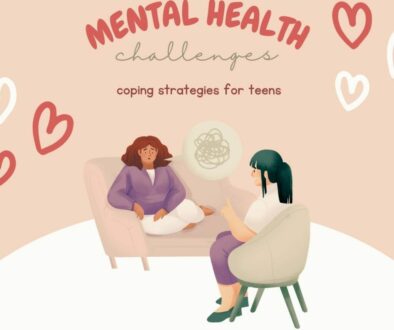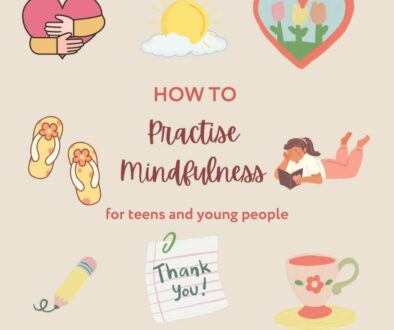7 Steps to Help Kids with Literacy Difficulties
Evolutionary studies have shown that human beings communicated through a spoken language. Each country, each community and each society have had its own way of verbal communication. Speech emerges naturally. On the other hand, written language is somewhat of a learned achievement. It takes time to grasp the concept of reading and writing. Many languages that are spoken throughout the world have no written form while others have a complex alphabetical and logographic scripts.
When babies utter their very first words, parents are over the moon. The next couple of years pass by and by the age of 3, most children can speak clearly. Some children are late talkers and achieve the milestone later. Eventually, it is time to go to school. Kids are taught the alphabets, numbers, and how to read and write. This is where both parents and children have to struggle. For some kids, the transition happens naturally. They grasp the concepts quickly. Others may take a longer time and a little more effort.
Is your child having trouble reading? Here is how you can help! Share on XA worried mother once expressed her concern about how her daughter might be experiencing some literacy difficulties in school. She wouldn’t understand what she read. This is where it gets tricky. Literacy difficulties aren’t limited to dyslexia, a decoding deficit, there are other forms as well; such as reading comprehension impairment, where a child may difficulty comprehending the written text, and numeracy difficulty, in which a person may have trouble analyzing mathematical information. Some issues are associated with disorders like Specific Language Impairment (SLI) and hearing loss.
If you feel your child is facing literacy difficulty at school, don’t ignore it. Here is what you can do to help your kid!
If you feel your child is facing literacy difficulty at school, don't ignore it. Share on X1. Don’t Ignore Do Intervene
You are the one who knows your child inside out. If you have a feeling your child is having learning difficulties at school, don’t let it go and intervene immediately. A child’s brain is like a sponge and early intervention can help your child lead a normal, successful life.
First of all, have a heart to heart talk with them. What is causing the problem? It is spelling, reading, writing or math? Are they having trouble focusing? Once they admit the problem, seek professional help and set up a support system at home and school to promote their learning.
2. Find Out the Root Cause
Correct diagnosis at an early age can be a life-changer. Don’t be embarrassed and seek professional help. Visit a therapist or an organization that solely works to help kids with literacy difficulties. Once you have determined the root cause of the problem, you can help your child work on the issue.
My friend’s son had a hard time in primary school. He had bad grades, poor performance in class and almost zilch participation in extra-curriculum activities. At the tender of age of 10, he was under severe depression. It took another two years to find out the real cause – poor eyesight.
My friend admits she is ashamed that she didn’t seek help earlier. Since the diagnosis and brand-new glasses, the boy is doing much better in school. Functional vision problems can cause impair vision-related skills such as handwriting, reading and math.
Correct diagnosis at an early age can be a life-changer. Share on X
3. Approach the School
It is very important for a parent to consult the school and meet the child’s teachers. Find out their thoughts and listen to their advice. Perhaps, they have noticed a pattern that you overlooked. In most schools, there is a Special Education Needs Coordinator who deals with students with specific learning needs.
Schedule a meeting and go fully prepared. Don’t hesitate to ask questions regarding the problem your child is facing. Discuss the provisions that are being implemented in school for children with literacy issues. In many schools, the faculty includes a specialist teacher specifically hired to tutor students with learning difficulties.
4. Play Your Part at Home
At home, encourage your child to read and write to you. To prevent putting off your kid, you can make it a fun game. Place coloring pencils, markers, crayons, and some loose sheets of paper on a desk. Ask them to draw and label. Help them spell out the words. Make large posters and maps that require a lot of labeling. It will inspire the child to learn correct spellings and write neatly.
Furthermore, read as much as you can. Sit side by side with a book in hand. Read aloud to the child by emphasizing on difficult words. Motivate them to read aloud to you. You can carry out a drama skit in your living room and engage in dialogues. Please keep in mind that it will take time and a LOT of patience. Don’t overburden your child and never make them feel like a failure.
5. Does Your Child Need an Intervention Specialist?
If you feel your child has a severe learning disability, it is better to involve an intervention specialist in an early age. They will work with your child on an individual level and evaluate and implement methods needed for special academic adjustment.
If you are unsure where to find a reliable source, talk to your pediatrician or to special education department in your child’s school. The specialist will work with a child in a learning environment and will carry out different activities to build cognitive skills.
Does your child need an intervention specialist? Share on X6. Order and Structure
For children with literacy difficulties, having a daily routine with proper order and structure is extremely beneficial. It helps them to focus on tasks and learn effectively. At home, create a routine and stick to it. Put up the timetable on a place where it is quite visible.
They will get used to the idea and will be at ease while accomplishing the task. A colleague, whose daughter was diagnosed with ADHD, told me that reinforcing rules and being consistent helped her daughter a great deal. Children with ADHD struggle with self-control and need external help to regulate them. Having a structured environment will effectively scaffold them.
Provide your child with the best learning environment and encourage them to do better. Share on XIn the end….
7. Don’t Beat Yourself Up
Trust me, it is not your fault. Parents want the best for their kids and it hurts them when they are helpless to do something about it. Having a literacy difficulty is challenging, no doubt, but it won’t limit your child’s prospects. Moreover, most learning disorders like dyslexia have no effect on IQ. Big-shot organizations such as NASA and GCHQ recruit dyslexic people all the time!
Try out the above-mentioned steps and watch your child learn and grow. It won’t be an easy journey, however, a doable one. There will be days when you will feel like pulling your hair out, but easier days will follow. Provide your child with the best learning environment and aids and encourage them to do better. Hang in there!


















